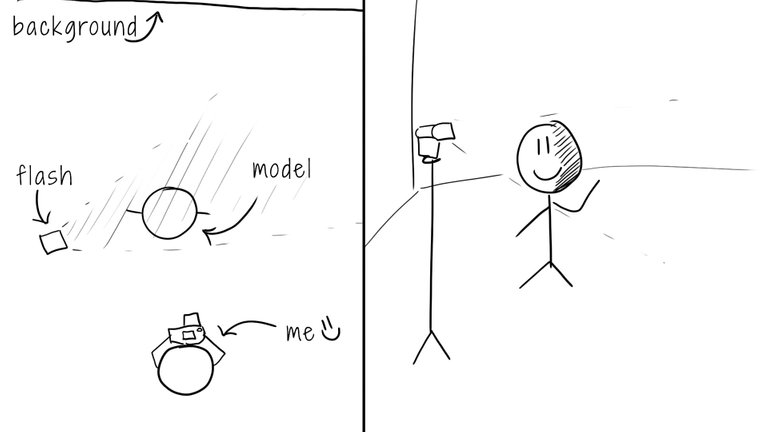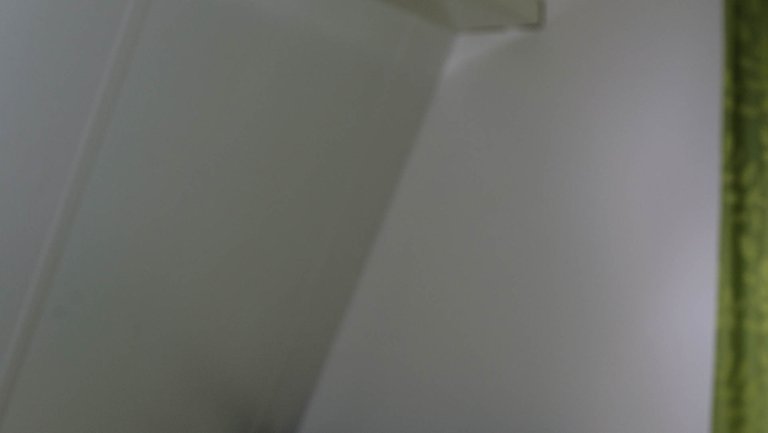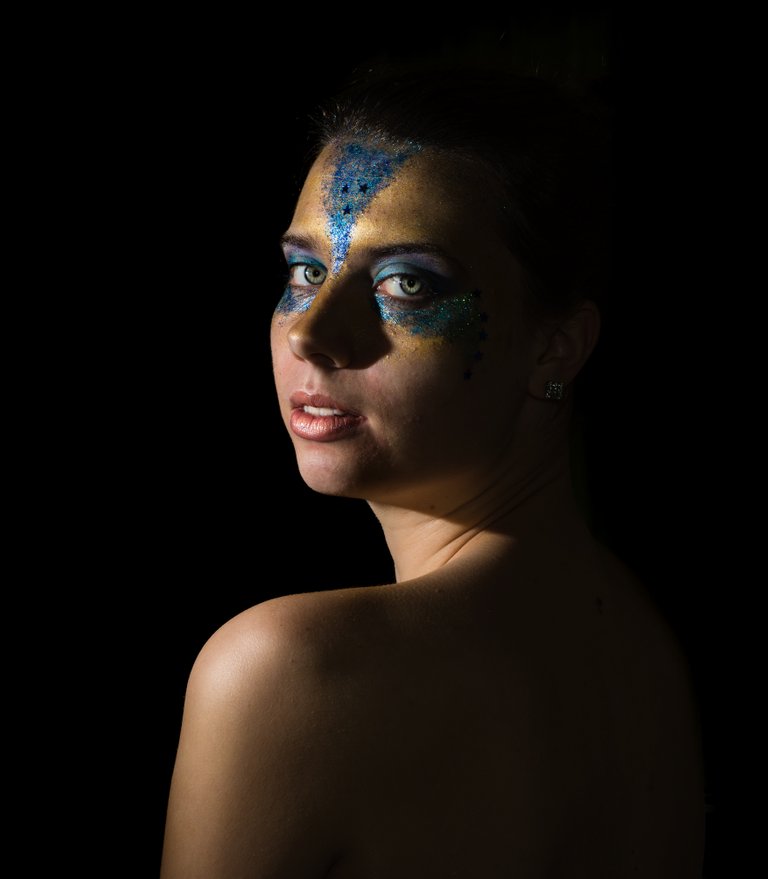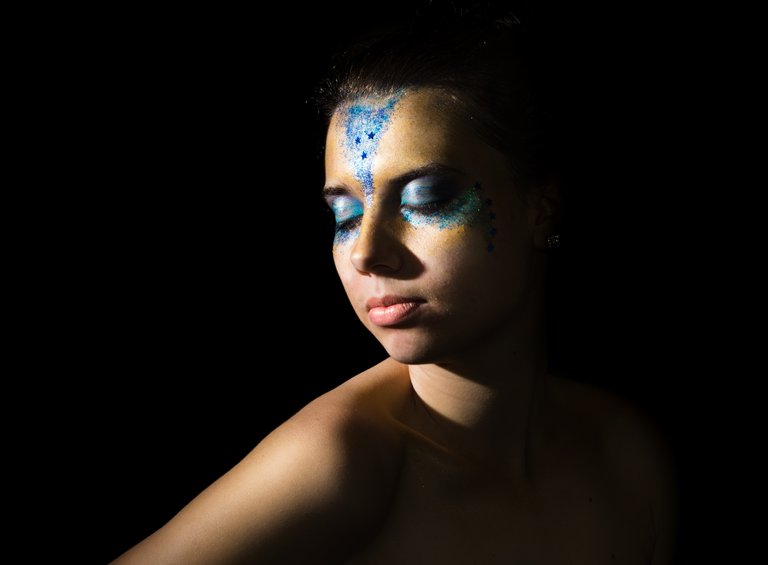Lately I’ve been experimenting with low key photography. Low key photography basically means that you create your photography with very little light. Most of the time, this results in an image where the complete focus lies on the subject that you are trying to photograph. And the best part is: you don't need a large budget to achieve this!
Low key photography with a black background can be wonderful for portraits. They give your subject an elegant look. Especially when photographing men, a low key photograph fits well. However, it works fine with female models as well ;). The contrasts that you create in such a photograph are very important. I will elaborate on how I created the low key photographs in this post :).

One of my low key portraits :)
Materials needed
In order to create a low key photograph, you will need the following tools:
- A camera that lets you control the lighting conditions (with manual mode, P mode or something similar. Most cameras nowadays have this option.)
- A flash (preferably an off-camera one, but I suppose it is possible with the built in flash
- A subject
That’s all! Instead of a flash, I suppose you could use another strong light, like a flashlight, but it needs to be a really strong light for it to work.

The setup that I used
How I created a black background
There are multiple ways you can go about this. First of all, you could buy a black backdrop from a photography shop. These are often quite expensive, but it makes the overall process easier. If you don’t have a black backdrop, you can look for black walls or black sheets that you could use. I did not use a black backdrop, but I’ll tell you how I managed to get a black background even without a backdrop.
Another way to get a black background, is to simply create a black photograph, and let the flash compensate for it. Let me explain what I mean a bit further: When you can control the lighting that falls into your camera and fall onto the sensor, you can create the conditions for a low key photograph yourself. This is easier if the room you are in is already dark, but if not, you can set the shutter speed and aperture of your camera in such a way that, without a flash, the picture is completely dark.

This was what one of the backgrounds actually looked like
Creating the photograph
This is where the flash comes in. Of course, you don’t want a black picture (I think) but you want something (your subject) to be visible. Using the controls of the flash, you can illuminate your subject. Now, I am not an expert at setting the settings of flashes, but I tried several shots to determine the strength of the flash. If you cannot control the settings of your light source, you will need to do a bit of post-processing in Photoshop or Lightroom. It will then be much harder to make sure the subject is well-lit and the background is completely black.
However, if you can control the light source, you can balance them out very well. You’ll just have to make sure that your flash does not illuminate the background. Therefore, it is easier to have a lot of space between the background and the model, if you shoot in a large enough space. Some tools can be used to focus the light, or you can use a larger space so that the light does not reach the walls in the room.

The result!

Another one shot during the same photoshoot
And this is how you create a low-budget low key photograph! The best way to go about this, is to just try it out yourself and experiment :). If you have any questions, let me know!
Alpha V1.0
You can read more here
Saturday.
You have earned 5.0 XP for sharing your photo!
Daily photos: 1/2
Daily comments: 0/5
Multiplier: 1.0 (not yet working)
Total XP: 6.00/100.00
Total Photos: 1
Total comments: 1
Total contest wins: 0
Follow:
Developed and sponsored by: Thank you for participating in #portraitphotography, the weekly selection will be released on @photocontests @juliank
Excellent Job!
Thank you! :)
Great work. This was quite helpful. I excel at composing photos of nature and architecture, but good images of people has always been difficult for me.
Thank you! What helps me a lot is looking at similar pictures, to get a feel of what type of poses are suitable for a certain shoot. Then I direct my model from those poses. They'll always interpret it a little different, so you'll still get a unique shot.
So basically, I look at tons of pictures of poses, and then I decide which ones I like and which not. And in time you'll know which poses work and which don't. :)